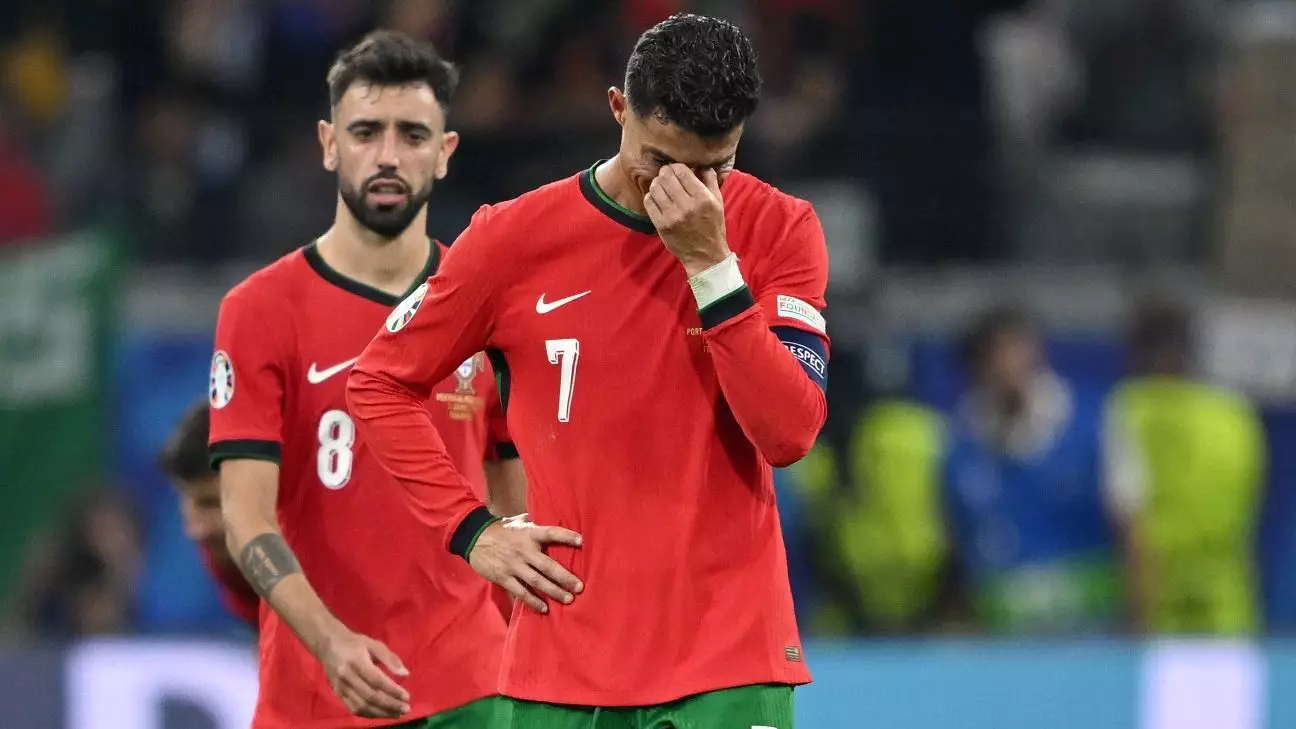Euro 2024 brought a new dimension to the traditional striker roles we are accustomed to seeing in football. The tournament saw a wide variety of different striker roles being used by managers, leading to star strikers misfiring and unexpected players sharing the Golden Boot award. This shift in striker roles played a significant role in shaping the outcome of the tournament.
Ronaldo: An Unfortunate Underperformance
One of the most glaring underperformances in Euro 2024 was Cristiano Ronaldo’s lackluster display for Portugal. Despite being the focal point of Portugal’s attacking system, Ronaldo failed to find the back of the net throughout the tournament. His poor finishing had a ripple effect on the team, as players like Bruno Fernandes and Bernardo Silva were more focused on setting up Ronaldo rather than taking their own chances.
Players like Havertz and Depay showcased a different approach to the traditional striker role. Their responsibilities extended beyond scoring goals, with an emphasis on link-up play, movement off the ball, and creating space for their teammates. Despite underperforming in terms of expected goals, their overall contribution to their team’s attacking play was instrumental in their team’s success.
Mikautadze: The Unconventional Striker
Georgia’s Mikautadze exemplified the evolution of striker roles in Euro 2024. His unconventional style of play, which involved occupying defenders, defending, and setting up his teammates for goal-scoring opportunities, highlighted the changing dynamics of the striker position. Despite not scoring many goals himself, Mikautadze played a crucial role in Georgia’s surprising success in the tournament.
Kylian Mbappé and Güler brought a new dimension to the striker role by enjoying attacking freedom without the burden of defensive responsibilities. Their ability to impact the game in various ways, whether through creating chances or taking shots on goal, showcased a shift towards a more dynamic and versatile approach to playing as a striker. Despite not converting all their opportunities, their presence on the field was crucial for their respective teams.
Kane & Morata: Sacrificing Goals for Team Success
Players like Harry Kane and Álvaro Morata demonstrated a willingness to sacrifice individual goal-scoring opportunities for the overall success of their teams. Kane’s deeper involvement in defensive duties and set-pieces, as well as Morata’s selfless work rate to create space for his teammates, highlighted a shift towards a more team-oriented approach to playing as a striker. Their leadership qualities as captains further emphasized the importance of teamwork and sacrifice in achieving success in a tournament format.
Euro 2024 showcased a significant evolution in the traditional roles of strikers in football. The emphasis on versatility, teamwork, and adaptability highlighted a new era of striker play where scoring goals is just one aspect of a striker’s responsibilities. The success of teams and individuals in the tournament was not solely dependent on individual goal-scoring prowess but rather on a collective effort to create and capitalize on goal-scoring opportunities. This evolution in striker roles is a testament to the ever-changing nature of the game and the need for players to adapt to new challenges and demands in modern football.

Leave a Reply